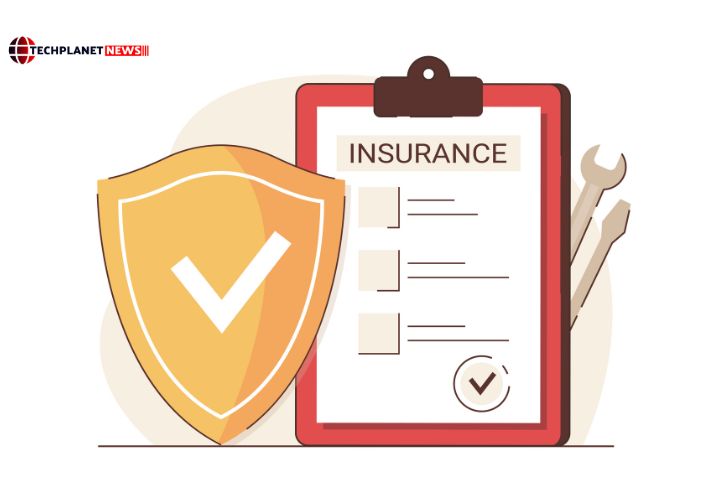
Life is full of uncertainties, and one of the biggest uncertainties is our ability to generate income. Whether you are the primary breadwinner in your family or a single professional, the unexpected can disrupt your financial stability.
This is where income protection insurance comes into play. In this comprehensive guide, we will explore what income protection insurance is, help you determine if it is right for you, and provide valuable insights on choosing the best policy to secure your financial future. Below we have discussed and have provided you with the top information you want to have for you. Let us check and see how the same can help us get ideas and leverage the opportunities. Understand each thing in detail and get the ideas you need.
Table of Contents
1. Understanding Income Protection Insurance
2. Is Income Protection Insurance Right for You?
3. Factors to Consider Before Purchasing Income Protection Insurance
4. How to Choose the Best Income Protection Insurance Policy
5. Frequently Asked Questions (FAQs)
1. Understanding Income Protection Insurance
Income protection insurance, also known as disability insurance or income replacement insurance, is a financial safety net designed to provide a portion of your income in the event you may find yourself unable to work because of some issues such as disability or illness. It ensures that you can continue to meet your financial obligations, such as paying bills, mortgages, and everyday expenses, even when you cannot earn your regular income.
2. Is Income Protection Insurance Right for You?
Determining whether income protection insurance is right for you depends on various factors, including your financial situation, family status, and job security. Here are some key considerations:
A. Financial Responsibilities: If you have financial dependents or significant financial obligations (e.g., mortgage, student loans, child care expenses), income protection insurance can be a prudent choice to safeguard your family’s financial future.
B. Job Security: Evaluate your job stability. If your job is not secure or if you work in a high-risk profession, income protection insurance can provide peace of mind.
C. Existing Coverage: Check if your employer offers disability coverage. While many employers provide short-term disability benefits, they may not cover all your expenses. Consider supplemental income protection insurance in such cases.
D. Savings and Emergency Fund: Assess your savings and emergency fund. If your savings cannot cover your expenses for an extended period without income, income protection insurance becomes more crucial.
E. Health Conditions: If you have pre-existing health conditions that might increase your risk of disability, having income protection insurance can be especially valuable.
3. Factors to Consider Before Purchasing Income Protection Insurance
Before you decide on an income protection insurance policy, consider these factors:
A. Benefit Amount: Determine the monthly benefit amount you would need. Typically, income protection insurance covers 50-70% of your pre-disability income. Calculate your essential expenses to determine the appropriate benefit level.
B. Waiting Period: The waiting period, also known as the elimination period, is the time between when you become disabled and when your benefits start. If you get to have a longer waiting period for your premiums you will be able to have the option for lower premium costs.
C. Benefit Period: Decide how long you want the benefits to last. It can be for a fixed term (e.g., 2 years) or until a certain age (e.g., 65).
D. Premiums: Compare premium costs from different insurance providers. Keep in mind that cheaper premiums might offer less comprehensive coverage.
E. Occupation: Some policies are tailored for specific professions. Ensure your occupation is covered under the policy you choose.
F. Exclusions and Limitations: Understand the policy’s exclusions and limitations. Some policies may not cover certain conditions or may have waiting periods for specific illnesses.
G. Policy Riders: Explore optional policy riders, such as inflation protection or return of premium, to enhance your coverage.
4. How to Choose the Best Income Protection Insurance Policy?
Choosing the best income protection insurance policy involves careful research and evaluation. You can follow the guide to initiate step by step.
A. Assess Your Needs: Start by assessing your financial needs, including monthly expenses, outstanding debts, and potential healthcare costs.
B. Compare Policies: Request quotes and compare policies from different insurance providers. Look at the coverage, waiting periods, benefit amounts, and premium costs.
C. Research Providers: Research the reputation and financial stability of insurance providers. Ensure they have a strong track record of paying claims promptly.
D. Read the Fine Print: Carefully read the policy documents to understand the terms, conditions, and exclusions. Note; if you are not clear, you must be seeking clarification for the insurance team to be satisfied.
E. Seek Professional Advice: Consider consulting a financial advisor or insurance expert to help you navigate the complex world of income protection insurance.
F. Review Your Policy Annually: Your financial situation may change over time. Check whether the policy of the insurance aligns with your current needs and you must check it first.
These are some of the top things that one needs to understand and must know about before looking for income protection insurance for them. The same will help them get the clarifications and the ideas they want to have for them.
Conclusion
Income protection insurance can be a vital financial tool to secure your income and maintain financial stability during challenging times. Before making a decision, carefully evaluate your needs, compare policies, and consider your circumstances. By doing so, you can choose the best income protection insurance policy that provides peace of mind and financial security for you and your loved ones. Please, share your feedback for the same. So, we can help you get more of the information you need. We will help you with the top information and ideas you need to have for you by having well-researched.
Frequently Asked Questions (FAQs)
Q1. Is income protection insurance the same as life insurance?
A1. No, income protection insurance provides financial support when you cannot work due to disability, illness, or injury, whole life insurance pays out a lump sum to beneficiaries upon your death.
Q2. Can I buy income protection insurance if I’m self-employed?
A2. Yes, self-employed individuals can purchase income protection insurance to safeguard their income in case of disability or illness.
Q3. Are benefits from income protection insurance taxable?
A3. In most cases, benefits from income protection insurance are not taxable. However, it’s essential to consult with a tax advisor to understand the specific tax implications in your jurisdiction.
Q4. What is the average cost of income protection insurance?
A4. The cost of income protection insurance varies depending on factors like your age, occupation, health, benefit amount, and waiting period. On average, premiums can range from 1% to 4% of your annual income.








